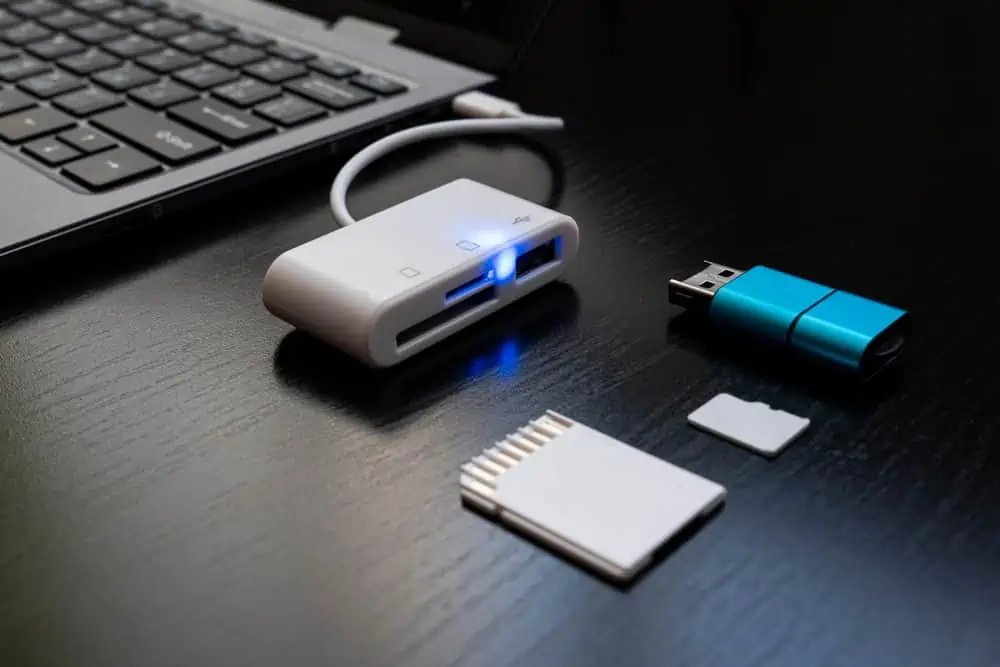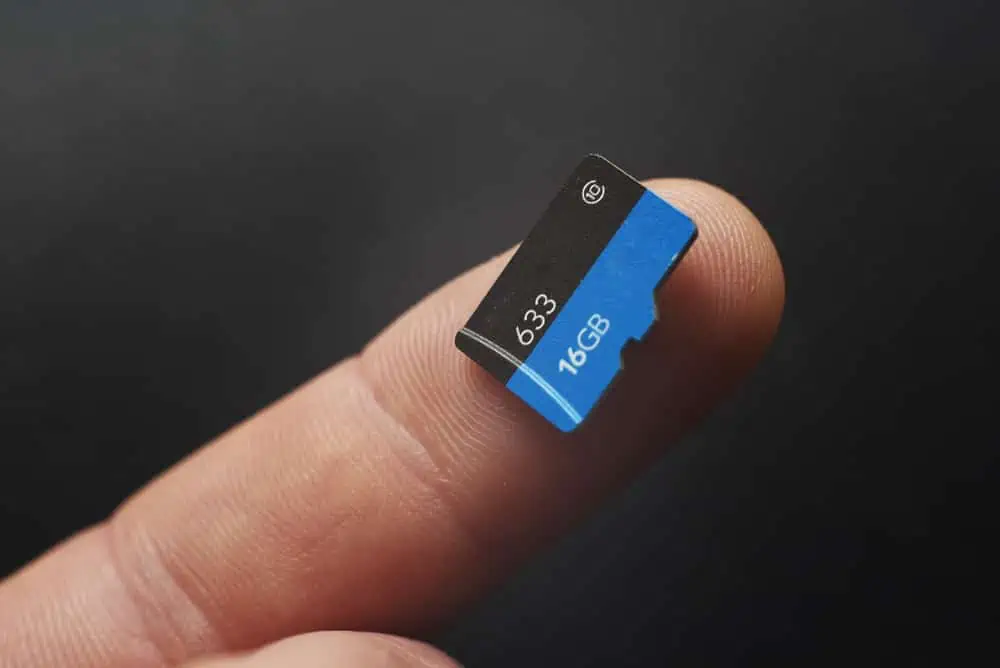How does disk space affect your PC performance? Find out about this and more in this comprehensive walk-through on disk space.
Overview
Some people prefer to call disk space “disk capacity” or “storage capacity”. Whichever name you call it, they all have the same meaning.
When you buy a PC, the maximum amount of data its HDD or SSD storage can store is its disk capacity/space.
Also, the maximum amount of data that any other storage device can store is its disk space. The storage devices include CDs and DVDs, floppy disks, memory cards, and flash drives.
Surprisingly, what a computer displays as the space of its disk usually differs from the actual space. In the next section, we will see the reason for this difference as well as how the technology works.
How Does Disk Space Work?
The capacity of a disk is measured in bytes – megabytes, gigabytes, terabytes, and so on.
A disk’s capacity or space is fixed and doesn’t change. What changes as you use the disk is the available space on it.
For example, a typical hard disk may have 500GB of space. If you store a 50GB file on it, the available space reduces while the disk capacity remains 500 GB.
Hence, the used space will now be 50GB, and the available space becomes 500GB – 50GB = 450GB. Still, the disk space remains 500GB.
Continuing with the example above, the disk will not store more data when the used space reaches 500GB. This will include the space used by the operating system itself.
However, the used space does not only depend on how many files you store. It also depends on how your operating system sees the space which is determined by the disk’s file system.
Features of Disk Space
From our discussion so far, you should be able to tell the actual space on a disk. Moreover, you can tell how this differs from the used space and the available space.
In this section, we’ll focus properly on the features of disk capacity. The features will also shed light on how disk capacity affects PC performance.
It is Measured in a Unit Called Byte
The capacity of a disk is measured in a unit called byte. What makes up a byte is 8 bits of data.
Speaking of a bit, it is the smallest unit of digital data consisting of a binary number. So, 8 bits (one byte) form a single character such as the letter “A”.
High-capacity disks have a huge space in multiples of bytes for data storage. It can be in kilobytes (1024 bytes), megabytes (1,048,576 bytes), or gigabytes (1,073,741,824 bytes).
Each Disk Has a Fixed Amount of Space
As I mentioned earlier, the amount of space you’ll get from a disk is not the same space it’s labeled with. On a computer, for instance, the OS it comes with already takes up part of the storage space.
This partly explains why part of your HHD or SSD’s space appears to be missing on checking it. That’s by the way.
During the installation of an Operating System, there is a stage of disk formatting. This stage is when the OS formats the disk with a valid file system.
The type of file system affects the storage space available. That’s because the file system manages access to the content of files and the metadata that describes those files.
For example, in a Windows OS, it is a known fact that the NTFS file system manages disk spaces more effectively compared to the FAT32 file system.
Available Storage Space Affects the Operating System’s Performance
As you continue to store files on a drive, the used space grows towards the maximum capacity. Appreciably, the disk’s performance will be fine initially, since the stored files are arranged orderly.
However, a hard drive will start splitting files and storing them wherever it can once it’s running low on space. This results in low performance since scattered files must all be read from their locations before using them.
For example, a disk that is 90% full won’t perform fast as one that’s 60% full. As you may have experienced, a computer with a disk almost full struggles more to open large files.
You Can Measure the Space Utilization on a Disk with a Tool Called Space Analyzer
A disk analyzer is a software that checks everything about space on a disk. This ranges from total space to space in use, and available space.
A space analyzer explores files and folders and can present information about them visually. Some of these analyzers use a pie chart, bar graph, or text and figures to describe a disk.
An example of a space analyzer on Windows OS is File Explorer, while Mac OS has the FE Finder. Also, Linux PCs use Nautilus, Dolphin, and many others.
Temporary Files Affect Both Used Space and Free Space on a Drive
If you uninstall an application from your computer, it leaves behind some junk files. Moreover, temporary files and cookies from web browsers accumulate over time.
These files may be hiding in different directories for a long time. In fact, some temporary files may need third-party applications to scan and remove them.
Therefore, as long as these files remain undetected, they keep affecting the available space on a storage drive.
Pros of Storage Space Utilization
Having Sufficient Storage Space Helps to Speed Up Computer Operation
If your computer has sufficient storage space, it will perform faster. You will experience the fastness of the operation starting with the boot time.
Besides the booting time, sufficient disk capacity can enhance the performance of other apps on a computer. On such a computer, you’ll notice that internet browsing as well as starting other apps will be faster.
That’s because the RAM can quickly swap some data with the disk to make room in its memory. This swapping of data allows the computer RAM to be faster, which in turn, makes the CPU work fast.
It Keeps Files and Data for Both the Computer and Its User
A computer’s storage space is the reservoir where a computer stores its own files. These files include the Operating System’s boot files and some Dynamic Link Library (DLL) files.
As for the computer user, the computer’s storage space is also where he can keep important digital files. The user’s files include text documents, images, videos, and application programs.
Storage Spaces Can Be Reserved (Partitioned) for Data Recovery
HDDs and SSDs allow partitioning of storage space or dividing it into sections. Of course, one can choose to partition an HDD, SSD, or even a thumb drive.
One major advantage of partitioning is that one can use a section as a recovery partition. This may be necessary if the disk in question serves as primary storage for a computer.
In the event of a corrupt sector, or OS, the recovery partition can keep important files until after fixing the error.
Support for Different File Systems
A disk can use any of the available file systems. It’s all a matter of which file system the underlying OS uses.
Thus, you can initially format a disk as FAT (File Allocation Table). Later on, you can reformat it as FAT32, exFAT, or NTFS (New Technology File System).
This helps to meet your storage requirements at any other time.
It is a Non-volatile Storage Space
The storage space on a hard disk retains data permanently. So, it is not like a Random Access Memory (RAM) that loses its content within a short period of time.
Appreciably, hard drives can store data for years. That makes it ideal for keeping Operating System files and user files as well.
Cons Of Storage Space
Insufficient Storage Space Slows a PC Down
Once the used space on a disk is getting closer to its maximum capacity, it becomes slower.
At that point, the computer that’s using the disk takes a long time to copy data to and from the disk. Not just that but opening applications on such computer will be slower
The File System Affects Both Maximum and Available Space
Formatting an 8GB flash drive as NTFS can give it a total capacity of 7.49GB and 7.42GB of available space.
However, formatting the same disk as FAT32 can give it 7.47GB of available space. Now, why could there be a 0.05GB difference in the available space?
This is due to the data structure and metadata that each file system uses in describing data.
FAT32 uses a simple construct and that’s why every operating system supports it. On the contrary, NTFS is more robust, but some Operating Systems do not support it.
Operating System Files can Reduce the Available Space
The storage capacity advertised on a disk is not the exact capacity it’ll offer you. The reason for this is that the drive is no more bare hardware, especially if it’s already on a computer.
The PC’s Operating System along with its file system will readily occupy some spaces.
It Has a Fixed Size
A hard disk’s storage capacity is fixed and does not increase. So, there is no way to get more space when you exhaust the capacity of a disk.
Nevertheless, you can manage the available space properly by regularly cleaning junk files. Moreso, removing files and software that you don’t use often can increase the available space.
The Maximum Size of Individual Files Depends on the File System.
Irrespective of the total capacity available, a disk does not determine the max size of an individual file. The file system that the OS used in formatting the disk determines that.
For example, FAT32 allows a maximum single file size of 4GB while NTFS allows up to 256TB single file.
Frequently Asked Questions
Disk or storage space affects the overall performance of a computer system. It stores the Operating System and other files that a computer and its users need.
Yes, it does affect performance. The more space on a disk, the faster the performance of the disk.
Specifically, the read/write speed of a disk is affected by how much free space it has. Moreover, the free space on a computer’s disk affects the speed of booting and how fast it can open applications.
Clearing up disk space is an easy task, and I cannot overemphasize its importance. Taking the following actions can help to release more disk space on your computer.
i. Uninstall applications you no longer use.
ii. Delete or backup unnecessary files.
iii. Occasionally empty your computer’s recycle bin
iv. Scan and clean temporary files, cached data, and browser cookies.
A lot of things use the space on a computer’s disk. Some of them are OS files, dynamic link library files, and application programs (both the installer and the installed programs).
Other data that may be consuming storage space are documents, media files, and cached data.
In general, 15% to 20% free space should be enough for a hard disk drive. This implies that with a 512 GB HDD, there should be at least 77 GB to 102 GB of free space.
That should be enough to prevent any significant slowdown in the operation of the computer.
As for SSDs, at least, 10% of free storage space is necessary. So, a 512 GB SSD needs to have 51 GB or more free space.
Disk full means that the amount of used space on a disk equals the maximum capacity of the disk. Therefore, trying to save more data on such a disk will return a “disk full” error message.
Yes, having low space on the primary disk drive such as Drive C: can slow a computer.
A disk organizes data properly when it has enough storage space. However, it will start splitting files and storing them wherever it can once it’s running low on space.
Whenever it wants to access the file with scattered parts, the parts must be read from their various locations. This results in low performance.
Moreover, a disk that is almost full won’t perform fast, especially while opening large files.
When your disk runs out of storage space, it won’t be able to store more files. In addition to that, the host computer will boot slower, open programs slower, and an overall slowdown will set in.
In extreme circumstances, if the disk partition where the OS is installed becomes full, the OS may not boot.
As stated in the overview section of this guide the term “disk space” means “storage space” or disk capacity. These terms refer to hard drive storage space.
Hard drive storage is typically used for the long-term storage of various types of files. Higher capacity hard drives can store larger amounts and sizes of files, such as videos, music, pictures, and documents.
Free space is the difference between the maximum capacity and the used space on a disk. In other words, free space is a term used to describe the available storage space of a drive or disk at any time.
Mathematically, a hard disk’s free space = (max capacity – used space).
Conclusion
Disk capacity/space is an important factor in a computer’s performance. Thus, its use is not only to store files but also affects the smooth running of the computer.
Therefore, managing your PC’s storage space properly is as important as other maintenance practices. The management practices include cleaning junk files, deleting temporary files, and emptying the recycle bin.
As a matter of fact, you should carry out these activities periodically on your computer’s disk.
Do you want to get the most out of your computer’s disk? Then, you should manage the storage space properly.
I hope I was able to explain disk space and how it works. I also hope that you found the article helpful and easy to understand.
If you do, click on “Yes” beside the “Was this page helpful” question below. You may also express your thoughts and opinions by using the “Leave a Comment” form at the bottom of this page.
Finally, you may find other helpful articles on our Storage & Disk Technology Explained page.



